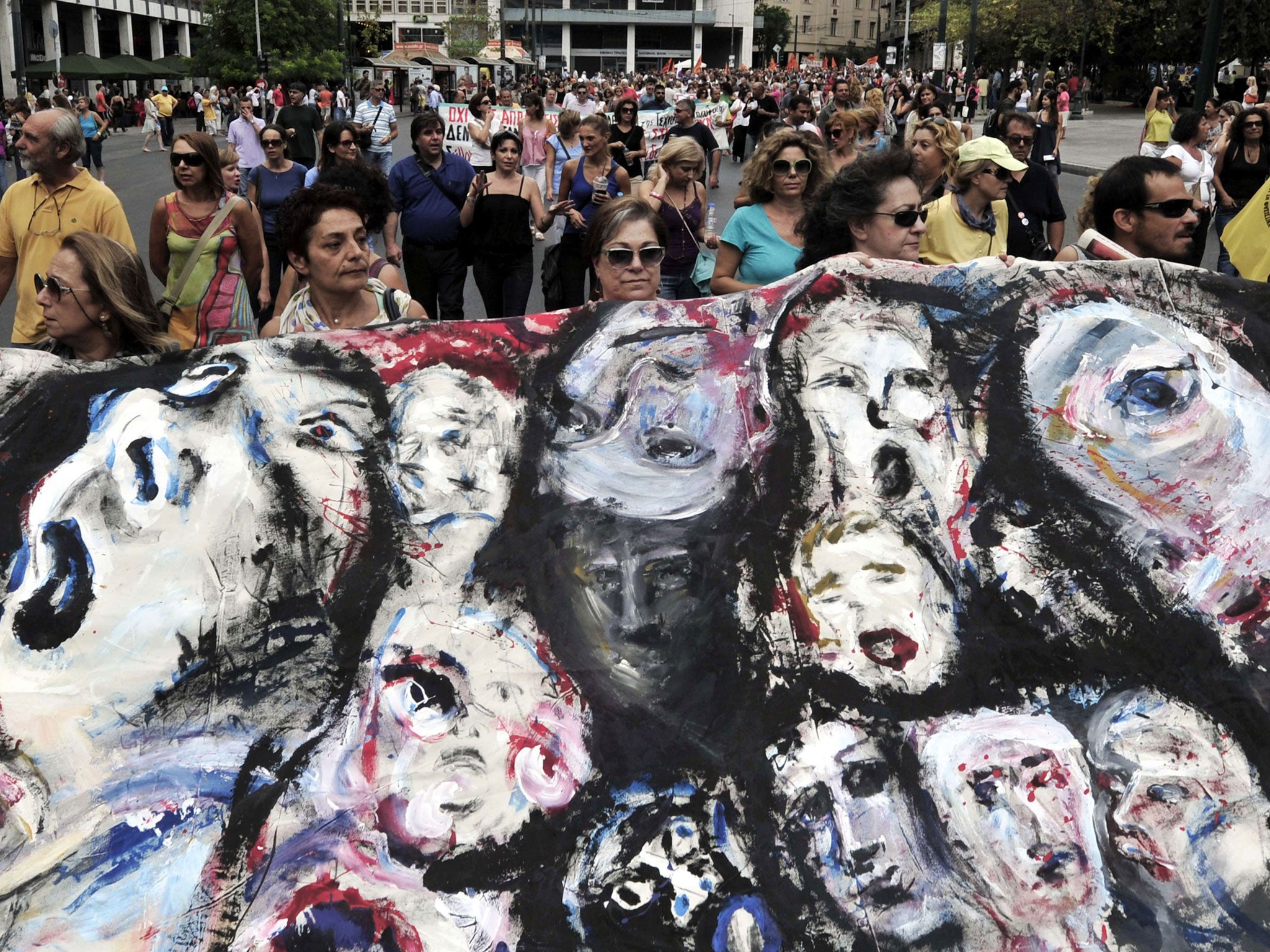Greek police use tear gas on protesting school staff as teachers go on strike against cuts

Greece’s academic year had barely got started when it ground to a halt on Monday, with school and university teachers beginning the first of a series of strikes by public sector employees to protest against new austerity measures.
Riot police used tear gas to disperse school security staff protesting in Athens outside the Administrative Reform Ministry where further cuts were being discussed under the bailout terms imposed by the ‘troika’ of the European Commission (EC), European Central Bank (ECB) and International Monetary Fund (IMF).
The strikes, organised by the teacher’s union OLME, were timed to exert pressure on the New Democracy government ahead of a visit next week by troika officials, to monitor Greece’s progress since it secured the funds to rescue it from bankruptcy.
Staff said they were striking over reduced salaries, slashed school budgets, and job cuts.
One primary school head teacher who wished to remain anonymous said: “Last winter we came very close to not being able to pay the school’s heating costs, and the school’s phone line was cut off because the bill could not be paid. I had to use my own mobile as the school’s contact.”
Earlier this year, the troika called for 12,000 to 15,000 public sector workers to be fired. The Greek government responded by putting together a so-called ‘mobility programme’ targeting 25,000 public sector employees. Contract staff such as cleaners, security personnel and school crossing guards have, in many cases, been laid off without any indication of where, if at all, they will be transferred to.
“I don’t know if I will have a job by December, or where I will be transferred. If I am placed far from my home there will be extra transport costs involved.” said Alexandra Yianopoulos, a cleaner at a high school.
Strikes are set to continue on Tuesday, with high school teachers, elementary school teachers and university professors expected to join a 48-hour strike being held by Greece’s civil servant union, ADEDY, on Wednesday and Thursday.
In a country with unemployment approaching 28 per cent and with a powerful lobby of unions, mass strikes are a common response to the government’s increasingly hardline approach to meeting the demands of the troika’s bailout package.
Another of the measures teachers have objected to is the moving of specialist teaching staff such as language and music teachers from higher education into the primary education system, which they say is aimed at replacing more expensive contract staff.
Within the higher education system, professors are to teach longer hours to larger classes and for reduced pay. Several training colleges have also been closed and their staff made temporarily redundant with no timeframe for their assessment or placing.
The president of OLME, Themis Kotsifakis, said, “To be a teacher in Greece means a salary of less than EUR 1,000 a month for the first 15 years,” adding that salaries had been cut by 45 per cent in the last few years and the retirement age raised to 65.
“New laws are being proposed for an exam system that we believe will drive children out of the educational system and into apprenticeships, essentially into poorly paid child labour,” said Mr Kotsifakis.
He estimated that the strikes had attracted a 90 per cent participation rates, contrary to local media estimates of 40 per cent.
The IMF has projected that Greece will need a further €11 billion (£9 billion) in assistance in 2014 and 2015, prompting denials from Greek Finance Minister Yannis Stournaras and anger from an austerity-weary Greek public.
Join our commenting forum
Join thought-provoking conversations, follow other Independent readers and see their replies
Comments
Bookmark popover
Removed from bookmarks